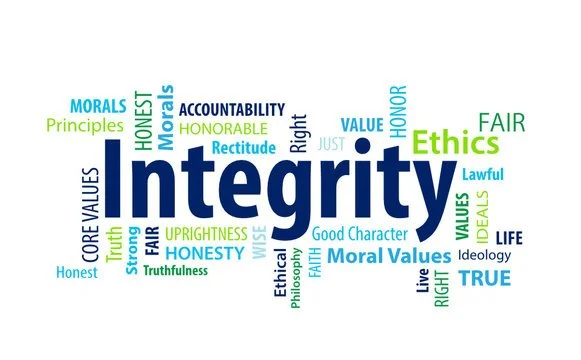Integrity of Our Word
When we have a high integrity of our word, people trust us and rely on us more. When we have a lower integrity of our word, people will second guess us and not rely on us. We all have people in our lives that we know, no matter how much they promise, they simply aren’t going to follow through with much of what they say. They have low integrity of their word. If you are reading this, you probably don’t want to be that person.
But what exactly does having the integrity of our word mean, and how do you get it? What explicit actions are required?
I recently attended a Pavilion workshop by Kevin “KD” Dorsey. He brought up the great point that these types of values are viewed differently by different generations. If we just assume everybody understands us, it is on us when people don’t act as we assume. I find Werner Erhard’s writing on integrity to be helpful but very abstract. This post is my attempt to spell out the specific actions that increase your integrity of your word in a working group.
Do what you say you will do. This is a foundational piece that can be broken into several components:
Track items. We are bombarded with requests in many forms (slack threads, email, system alerts, etc.). These need to be tracked.
Secure Timeline. If you agree to do a task, it is up to you to make sure you have a timeframe in which it needs to be completed. If you don’t have a timeframe, you should go to the person who gave you the task and discuss a clear and realistic timeframe. You want to avoid situations in which people come to you expecting a deliverable, and your response is, “Oh, sorry, I didn’t know when that was needed by.”
Secure Scope. You need to make sure you are in agreement around the scope of the task. You don’t want to provide a rough draft of a slide, for example, one minute before your counterpart is going on a customer call and is expecting something of production value. If you are at the deadline when an item is due, and you are saying, “Oh, I didn’t know what was required for this item,” that is a lack of integrity on your part.
What do to when we can’t do it all. We are all stepping up in a demanding environment and will be in situations where we can’t to do everything on our plate. This is a rule rather than an exception in high-demanding professional environments. The question is how do we handle those situations. As soon as you find yourself in that situation, you should:
Saying no to tasks. Don’t agree to do something you can’t do ahead of time. It’s better to turn down a task so the asking can adjust than it is to take on a task you can’t do and surprise the asking by letting them down.
Evaluate priorities. Look at your items and try to see if you can prioritize in a new way to meet the stated goal of your task.
Escalate priorities. If you have too many priorities that you can’t complete, escalate to your manager and get them to help prioritize. There might be a higher-level priority that are out of your scope that your manager can re-prioritze.
Alert asker early and often. The absolute top priority is letting the asker know that you will not be able to deliver on a commitment as soon as you are able to. This will give the asker the most time possible for them to make an adjustment on their task deadlines.
Acknowledgement restores integrity. At the end of the day, we will still miss commitments in our demanding environment. Acknowledging those misses and the impact it causes is a way to restore integrity. Also, discussing what could be done to avoid repeating that situation not only restores your integrity but might lead to a new system for the company to grow with.
Other things we can do
Alert doers. If we’ve asked a task of someone and the time/scope of that task changes, we should let them know ASAP of those changes. There is nothing worse to complete a task for someone on time, and have them say, “Oh, we don’t need that anymore.”
Maintain calendars. Another way to honor our word is keeping our calendar up to date. Especially in our remote environment, the more we can broadcast our actual availability will allow those around us to plan better.
